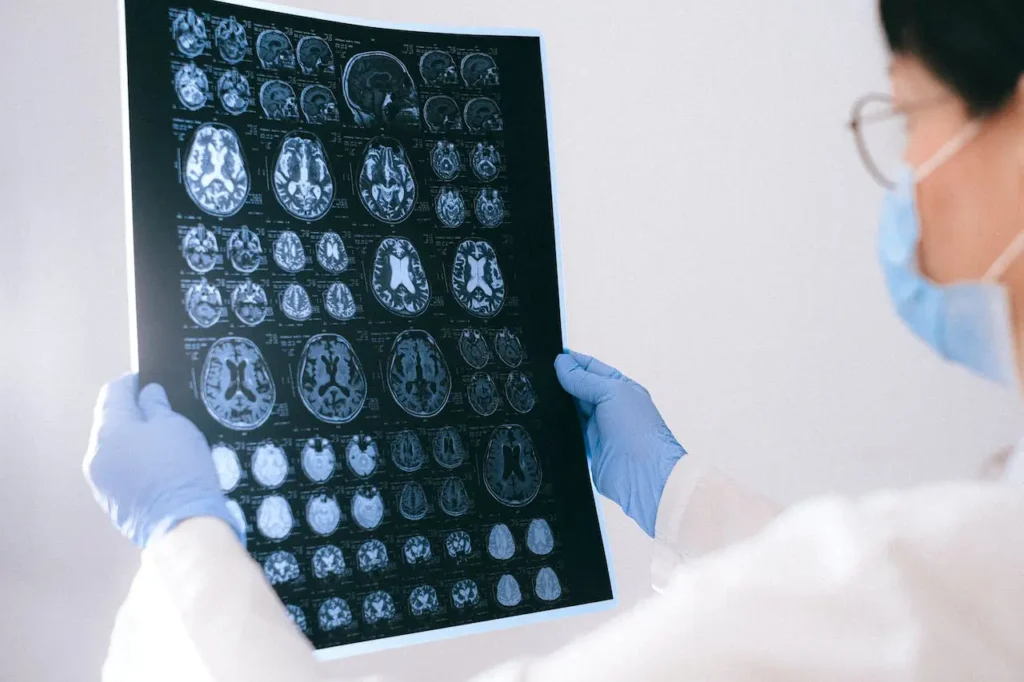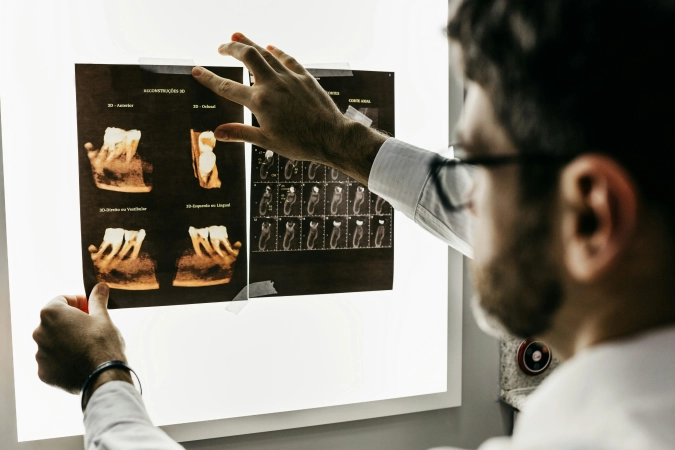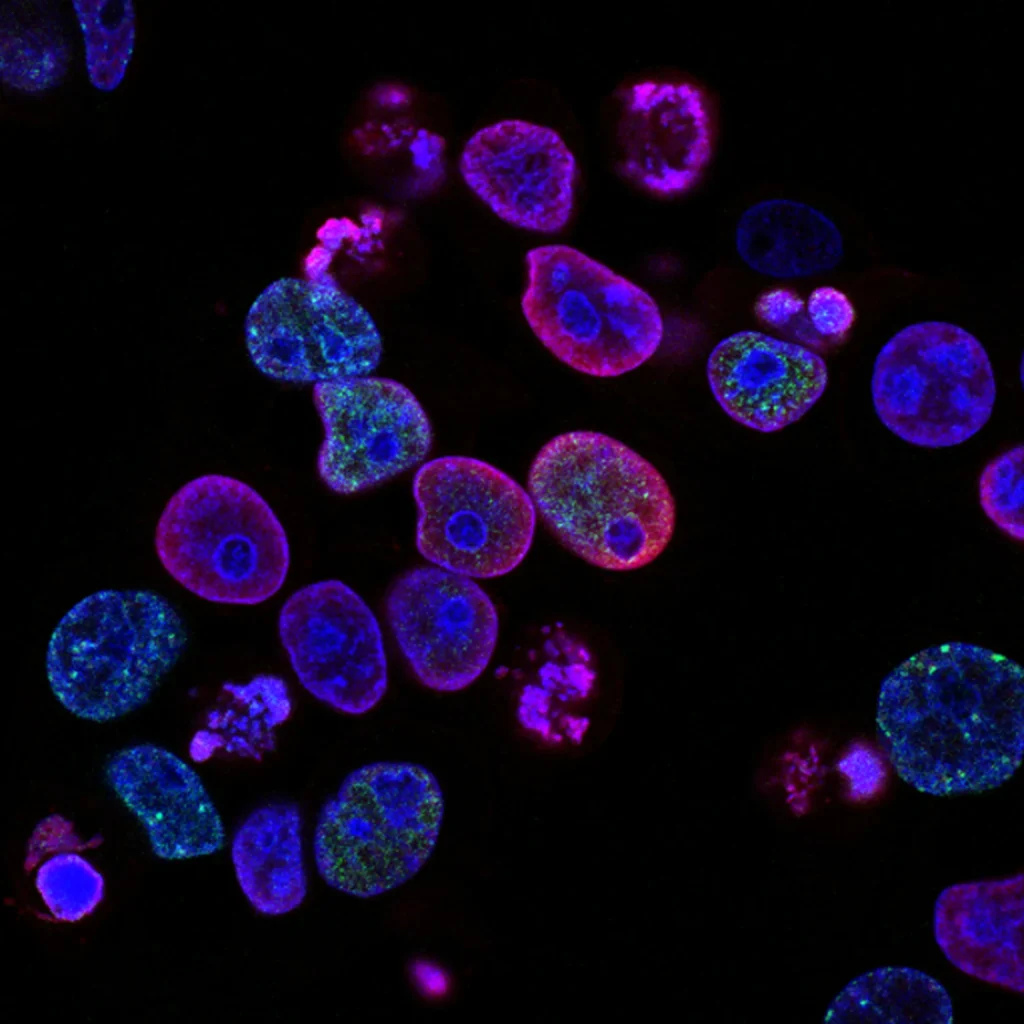Developmental Delays vs Autism: Learn the Differences?
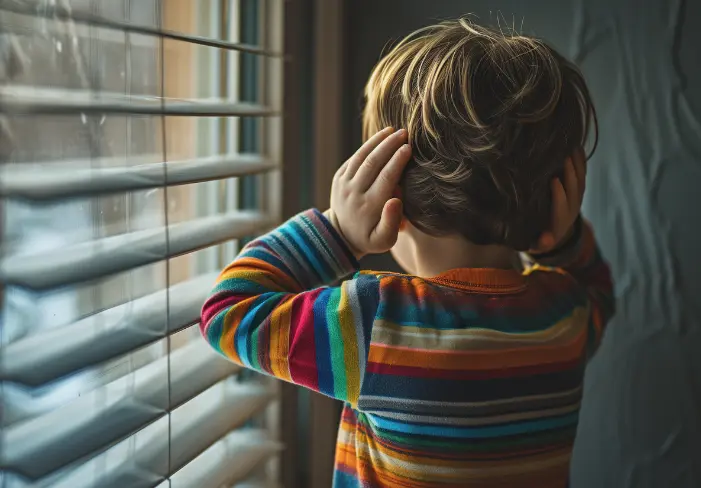
Introduction
This post may contain affiliate links, meaning I may earn a commission if you make a purchase, at no extra cost to you. I only recommend products I trust. Thank you for your support.
Developmental delays and autism are conditions that can affect a child’s growth and development. While they may present similar signs and symptoms, it is crucial to recognize their distinctions.
Developmental Delays vs Autism: Understanding the differences between these conditions can help parents and caregivers seek appropriate interventions and support for their child’s unique needs.
Early identification and intervention are key in promoting optimal development and improving outcomes for children with developmental delays or autism.
This article will explore the characteristics, symptoms, diagnosis, and treatment of developmental delays and autism, highlighting their unique aspects and helping parents and caregivers navigate these challenges.
What are Developmental Delays?
Definition and Overview
Developmental delays occur when a child does not meet their milestones within the expected time frame.
These milestones encompass various aspects of growth, including physical, cognitive, social, and emotional development.
Developmental delays can manifest in areas such as mobility, communication, language skills, or interpersonal interactions.
What causes Developmental Delays?
Developmental delays can have various causes, including genetic factors, environmental influences, medical conditions, or premature birth.
Some children may experience delays in one specific area of development, while others may have delays across multiple domains.
It is important to note that developmental delays can occur in children without a specific diagnosis of autism.
Common causes of developmental delays include;
- Genetic Factors: Some developmental delays can be attributed to genetic abnormalities or inherited conditions.
- Premature Birth: Babies born prematurely may experience developmental delays due to their immature nervous system.
- Environmental Factors: Exposure to toxins, such as lead or certain chemicals, during pregnancy or early childhood can contribute to developmental delays.
- Infections: Certain infections during pregnancy or infancy, such as Rubella or Cytomegalovirus (CMV), can impact a child’s development.
- Chronic Illness: Children with chronic health conditions may experience delays in their development due to the impact of their illness on various bodily functions.
- Lack of Stimulation: A lack of appropriate stimulation and early learning experiences can hinder a child’s developmental progress.
- Brain Injury: Traumatic brain injury or other forms of brain damage can result in developmental delays.
Symptoms and Signs of Developmental Delays
The symptoms and signs of developmental delays can vary depending on the child and the specific area of development affected.
Some common signs and symptoms of developmental delays include;
- Delayed Speech and Language Skills: Children may have difficulty speaking or understanding spoken language appropriate for their age.
- Fine and Gross Motor Delays: Delays in motor skills can manifest as difficulty with coordination, balance, or manipulating objects.
- Cognitive Delays: Children may exhibit slower cognitive development, including difficulties with problem-solving, memory, or attention.
- Social and Emotional Delays: Children with developmental delays may struggle with social interactions, emotional regulation, or understanding social cues.
- Delayed Self-Help Skills: Difficulties with activities of daily living, such as dressing or feeding oneself, may indicate developmental delays.
- Delayed physical milestones: Children experiencing developmental delays may take longer to reach physical milestones such as crawling or walking.
- Lack of Interest in Play: Children may lack interest in age-appropriate play activities or exhibit limited imaginative play skills.
- Slow Adaptation to New Environments: Difficulty adjusting to new environments or routines can be a sign of developmental delays.
Understanding the specific developmental milestones for each age group can help parents and caregivers identify potential delays and seek appropriate evaluations and interventions.
Regular developmental screenings are recommended to monitor a child’s progress and identify any areas of concern.
What is Autism?
Definition and Overview
Autism Spectrum Disorder (ASD) is a neurological and developmental disorder that affects how individuals interact, communicate, learn, and behave.
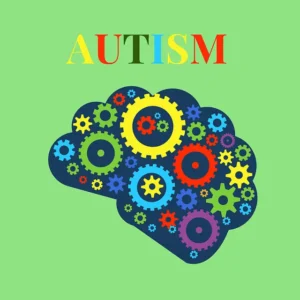
ASD is a spectrum disorder, meaning it presents differently in each person and can range from mild to severe.
Individuals with autism may have challenges with social skills, communication, and may exhibit repetitive behaviors or restricted interests.
What causes autism?
The exact causes of autism are still not fully understood, but research suggests a combination of genetic and environmental factors may play a role.
It is important to note that autism is not caused by parenting practices or vaccines.
Genetic predisposition, prenatal factors, and certain environmental influences are believed to contribute to the development of autism.
Common causes of autism in children include;
- Genetic Factors: Research suggests that genetic predisposition plays a significant role in the development of autism.
- Environmental Factors: Exposure to environmental toxins or certain prenatal infections has been linked to an increased risk of autism.
- Brain Development Abnormalities: Differences in brain structure and function have been observed in individuals with autism.
- Advanced Parental Age: Older parents, particularly fathers, may have an increased likelihood of having a child with autism.
- Complications during Pregnancy or Birth: Certain complications during pregnancy or birth, such as low birth weight or oxygen deprivation, may contribute to the development of autism.
- Immune System Dysfunction: Abnormalities in the immune system have been associated with autism spectrum disorder.
- Epigenetic Factors: Epigenetic modifications, which can alter gene expression, have been implicated in the development of autism.
Symptoms and Signs of Autism
Autism is typically diagnosed in early childhood, as symptoms generally appear in the first two years of life.
Early identification and intervention can greatly improve outcomes for individuals with autism, allowing them to develop important skills and lead fulfilling lives.
Individuals with autism may struggle with making eye contact, responding to their name, or engaging in conversations with others.
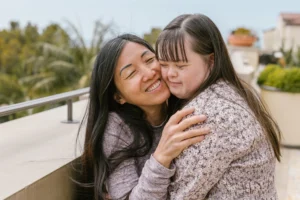
Some common signs and symptoms of autism include;
- Social Communication Difficulties: Children may have difficulty initiating or sustaining conversations, understanding nonverbal cues, or engaging in joint attention.
- Repetitive Behaviors: Repetitive behaviors, such as hand-flapping, rocking, lining up toys, and a strong attachment to routines are common signs of autism.
- Sensory Sensitivities: Children with autism may be overly sensitive or under-responsive to sensory stimuli, such as sounds, lights, or textures.
- Limited Interests and Preoccupations: Developing intense interests in specific topics or objects and displaying rigid adherence to routines are characteristic of autism.
- Difficulty with Social Interactions: One of the primary symptoms of autism is difficulty with social interaction. Children may struggle to establish and maintain relationships, interpret social cues, or engage in imaginative play.
- Lack of Pretend Play Skills: Limited imaginative or pretend play skills can be indicative of autism.
- Delayed Speech or Language Skills: Children may have delayed or atypical speech development, such as echolalia (repeating words or phrases) or unusual speech patterns.
- Unusual Responses to Changes: Difficulty coping with changes in routines or environments may be a sign of autism.
Key Differences between Developmental Delays Vs Autism
While both developmental delays and autism can impact a child’s development, there are key differences between the two conditions.
It is important to recognize these differences in order to provide appropriate support and interventions.
Social and Emotional Interaction
Children with developmental delays may exhibit delays in social and emotional skills, such as making friends or understanding emotions.
Children with autism often struggle with social interaction and may have difficulties making eye contact, understanding social cues, or engaging in reciprocal conversations.
Communication Abilities
Children with developmental delays may experience delays in speech and language skills. However, these delays are not exclusive to autism and can have various causes, such as hearing impairments or language disorders.
Autism is characterized by significant difficulties in communication. Some individuals with autism may be nonverbal or have limited verbal communication abilities.
They may rely on alternative communication methods, such as sign language or augmentative and alternative communication (AAC) devices.
Cognitive and Motor Skills
Children with developmental delays may have delays in cognitive abilities, such as problem-solving or memory skills, and motor skills, such as coordination or fine motor control.
Cognitive stimulation therapy can help improve cognitive function, memory, and overall mental well-being, making it a valuable approach for enhancing cognitive abilities and quality of life.
Children with autism may exhibit repetitive or stereotyped behaviors and interests, which can impact their ability to engage in age-appropriate activities and adapt to new environments.
| Developmental Delays | Autism |
|---|---|
| Broad range of delays in multiple areas of development | Specific impairments in social interaction, communication, and behavior |
| May exhibit a wide range of symptoms | Distinctive characteristics such as repetitive behaviors and sensory sensitivities |
| May not impact social interactions | Core feature is social difficulties |
| Can be temporary or catch-up delays | Lifelong condition |
| Not necessarily falling on a spectrum | Spectrum disorder with varying levels of impairment |
| Caused by various factors | Primarily influenced by genetic and environmental factors |
| May not exhibit specific diagnostic criteria | Specific diagnostic criteria outlined in the DSM-5 |
| Can be resolved or improved with targeted interventions | Requires ongoing support and management |
Diagnosis and Assessment of Developmental Delays
Developmental screenings are recommended at regular intervals to monitor a child’s progress and identify any potential delays.
The American Academy of Pediatrics recommends screenings at 9, 18, and 30 months of age. If a screening indicates potential developmental delays, further evaluation may be necessary.
During the evaluation, the healthcare professional will consider the child’s medical history, observe their behavior and interactions, and may administer standardized tests or questionnaires.
Here are several methods employed to diagnose and assess developmental delays in children;
- Developmental Screening: Healthcare professionals use standardized tools to assess a child’s development and identify potential delays.
- Comprehensive Developmental Evaluation: A thorough assessment is conducted by a team of specialists, including pediatricians, psychologists, and therapists, to evaluate all areas of development.
- Medical Evaluation: Medical tests, such as genetic testing or brain imaging, may be conducted to identify any underlying medical conditions contributing to the delays.
- Parental Input and Observation: Parents play a vital role in providing information about their child’s development, behaviors, and milestones.
- Developmental Milestone Tracking: Regularly monitoring a child’s developmental progress can help identify any concerns or delays.
- Collaboration with Early Intervention Programs: Working with early intervention programs can provide additional support and resources for children with developmental delays.
- Continual Monitoring and Reassessment: Developmental delays may change over time, and regular monitoring and reassessment are crucial to ensure appropriate interventions.
- Individualized Education Plan (IEP): For school-aged children, an IEP can be developed to outline specific goals and accommodations to support their educational needs.
Diagnosis and Assessment of Autism
Diagnosing autism involves a comprehensive evaluation process. Behavioral observations, medical history, and parental input are crucial components.
The healthcare professional assesses social communication skills, repetitive behaviors, and sensory sensitivities.
Screenings for autism often occur during regular well-child check-ups, but additional assessments may be recommended if any concerns arise.
Formal diagnostic tools, like the Autism Diagnostic Observation Schedule (ADOS) or the Autism Diagnostic Interview-Revised (ADI-R), may be utilized for a more in-depth evaluation.
Here are various approaches used to diagnose and evaluate autism in children;
- Developmental Screening: Healthcare professionals use standardized tools to identify potential signs of autism during routine check-ups.
- Diagnostic Evaluation: A comprehensive assessment is conducted by a team of specialists, including developmental pediatricians, psychologists, and speech therapists, to determine if a child meets the criteria for autism spectrum disorder.
- Diagnostic Criteria: The Diagnostic and Statistical Manual of Mental Disorders (DSM-5) outlines specific criteria that must be met for an autism diagnosis.
- Parental Input and Observation: Parents provide crucial information about their child’s behaviors, social interactions, and developmental history, aiding in the diagnostic process.
- Assessments by Multiple Professionals: Various professionals, such as speech therapists, occupational therapists, and psychologists, may conduct assessments to gather a comprehensive understanding of the child’s strengths and challenges.
- Collaboration with Schools: Communicating with schools and involving educational professionals can help develop appropriate educational plans and accommodations.
- Continual Monitoring and Reassessment: Regular monitoring and reassessment are essential to track an individual’s progress and adjust interventions accordingly.
- Support and Counseling: Following a diagnosis of autism, families may benefit from support groups, counseling services, and access to resources for individuals on the spectrum.
Treatment and Therapies
Various therapies and interventions can support children with developmental delays and autism in reaching their full potential.
These therapies are tailored to address specific areas of need and promote growth and development.
Occupational Therapy
Occupational therapy focuses on helping children develop the necessary skills to perform activities of daily living and participate in meaningful occupations.
Occupational therapists address areas such as fine motor skills, self-care abilities, sensory processing, and social skills.

Therapists use various techniques and interventions, including play-based activities, sensory integration therapy, and adaptive strategies to support a child’s development and independence.
Speech Therapy
Speech therapy aims to improve a child’s communication skills, including speech production, language comprehension, and social communication.
Speech therapists work on articulation, expressive and receptive language, pragmatic skills, and alternative communication methods when necessary.
Therapists use a variety of techniques, such as play-based activities, visual supports, and augmentative and alternative communication (AAC) devices, to help children improve their communication abilities and interact effectively with others.
Applied Behavior Analysis (ABA)
Applied Behavior Analysis (ABA) is a scientifically based approach that focuses on understanding and modifying behavior.
ABA therapists use structured interventions and positive reinforcement to teach new skills, reduce challenging behaviors, and promote social interactions.
ABA therapy is commonly used for children with autism but can also be effective for children with developmental delays in addressing specific behavioral challenges and promoting skill development.
Individualized Education Program (IEP)
For children with developmental delays or autism who are of school age, an Individualized Education Program (IEP) can provide tailored support in an educational setting.
The IEP outlines specific goals, accommodations, and services needed to support the child’s academic and developmental needs.
The IEP team, including parents, teachers, therapists, and school administrators, collaborates to develop and implement the plan.
Regular progress monitoring and adjustments are made to ensure the child’s ongoing growth and success in the educational environment.
Parental Support and Resources
Parents and caregivers play a crucial role in supporting children with developmental delays and autism.
It is essential to have access to resources, information, and support networks to navigate the challenges associated with these conditions.
Here are some resources for parents to find more information and support;
- Autism Speaks: Autism Speaks is an organization dedicated to promoting solutions, support, and advocacy for individuals with autism and their families.
- Website: www.autismspeaks.org
- Services Provided: Resource library, toolkits, information on early intervention and therapies.
- National Autism Association (NAA): NAA offers support, education, and advocacy for individuals affected by autism.
- Website: www.nationalautismassociation.org
- Services Provided: Resources for parents, safety products, information on treatment
- National Association for the Education of Young Children (NAEYC): NAEYC provides resources, articles, and information on early childhood education and development.
- Website: www.naeyc.org
- Services Provided: Information on developmental milestones, educational resources, parenting support.
- Parent to Parent USA: This organization connects parents of children with special needs to provide support, guidance, and a network of understanding individuals.
- Website: www.p2pusa.org
- Services Provided: Parent support, mentorship, information on community resources.
- American Academy of Pediatrics (AAP): AAP provides information and resources for parents and healthcare professionals on child development and developmental delays.
- Website: www.aap.org
- Services Provided: Information on developmental milestones, parenting tips, healthcare guidance.
Additionally, joining support groups or connecting with organizations that specialize in developmental delays and autism can provide valuable support and resources.
These groups offer opportunities for parents to share experiences, gain insights, and access information about therapies, interventions, and community services.
Hearing about the experiences of other families, their challenges, and the progress their children have made can be motivating and reassuring.
Conclusion
If you suspect your child may be experiencing developmental delays or autism, don’t hesitate to seek professional guidance.
Early identification, evaluation, and intervention are crucial for children with developmental delays or autism.
Therapies and support services, such as occupational therapy, speech therapy, and behavior analysis, can help children reach their full potential and improve their overall quality of life.
By providing appropriate support, resources, and understanding, parents and caregivers can navigate the challenges associated with developmental delays and autism and help their children thrive.
Remember, you are not alone in this journey!
Furthermore, I recommend perusing the following articles at your leisure: PDA Autism, comprehensive guide to hiring a nanny, best childcare near me, and powerful caregiver coping strategies.
Frequently Asked Questions (FAQs)
Is a developmental delay the same as autism?
No, developmental delays refer to a situation where a child fails to achieve specific milestones within the expected timeframe. Autism, on the other hand, is a neurological disorder that affects a child’s ability to communicate and interact with others.
Can a child have both developmental delays and autism?
Yes, it is possible for a child to have both developmental delays and autism. It is crucial to consult with professionals for a comprehensive evaluation to determine the best course of action and support for the child.
How can I support my child with developmental delays or autism?
Early intervention is key in supporting children with developmental delays or autism. Seeking professional guidance, accessing appropriate therapies and interventions, and connecting with support communities can greatly assist in your child’s development and well-being.
What causes autism?
The precise causes of autism remain unclear, but a combination of genetic predisposition, prenatal influences, and specific environmental factors are thought to contribute.
What causes development delays?
Development delays are caused by a range of factors, including genetic influences, environmental conditions, medical issues, or premature birth. These delays can manifest in specific developmental domains or affect multiple areas, varying from child to child.

